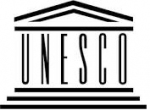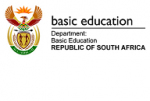Towards Inclusive Education
Project Leader
Prof. Mirna Nel
Description
Over the past two decades, the notion of including and educating learners with diverse educational needs in one classroom has shaped developments in education across the world. Currently, the vision for education is encapsulated by the Sustainable Development Goal (SDG) 4: “Ensure inclusive and equitable quality education and promote lifelong learning opportunities for all” (UNESCO et al., 2015, p. iii). The Education 2030 Incheon Declaration and Framework for Action document uses SDG 4 as a fundamental principle to a renewed education agenda to address global and national educational challenges. The goal of this framework asserts that inclusive education for all is the key to “address all forms of exclusion and marginalization, disparity, vulnerability and inequality in education access, participation, retention and completion and in learning outcomes” (UNESCO et al., 2015, p. 8).
Teachers are regarded as central to the successful implementation of inclusive education. However, being able to deal with a diversity of needs in an inclusive educational environment, seem to remain difficult for them. Focusing on the role of the teacher, within the overarching inclusive education project, several aspects are being researched by Master’s and PhD students and a post-doctoral research fellow:
- Exploring Full-Service school teachers’ self-efficacy within an inclusive education system – Dr Isabel Payne-Van Staden
- The effective functioning of school support systems – Dr Thabo Makhalemele
- Challenges and guidelines for the implementation of inclusive education: Experiences of Full-Service school educators – Mrs Ivy Serero
- Developing an inclusive pedagogy approach for Full-Service Schools: An Action Research Approach – Mrs Usha Ojageer
- A model towards creating positive Accounting classroom conditions that support successful learning at school – Mrs Viné Petzer
- The opinions of Secondary School teachers regarding the management of the flexible implementation of CAPS – Ms Rodean Booysen
- Secondary school teachers’ perspectives on collaboration within an inclusive education system when supporting learners with behaviour problems – Mrs Mallery Mitchell
- Teachers of South Africa’s understanding regarding high-performance learning – Ms Elsa van der Merwe
- Developing a holistic language profile of an Intermediate Phase ESL learner within an ecosystemic perspective – Mrs Deveranie Latchman (PhD student)
- Supporting teachers to improve Foundation Phase English Second Language learners’ phonological awareness skills – Dr Debbie Schaffler (Postdoctoral research fellow)
UNESCO Institute for Statistics (UIS) and UNICEF (2015). Fixing the Broken Promise of Education for All: Findings from the Global Initiative on Out-of-School Children. Montreal: UIS.
Teacher Education for Inclusion
This project is built on the premise that pre-service teachers must be adequately enabled to contribute to a sustainable and quality inclusive education system by infusing it as a foundational principle and approach into the entire teacher education curriculum. It should therefore not only be addressed in additional modules. In having limited numbers of modules on inclusion, taught by a small group of specialist staff, inclusive education will remain the ‘other course’ with no embedded link within the modules.
The project, which is funded by the European Union, will consequently focus on improving Initial Teacher Education (ITE) programmes where inclusive education is infused in the whole curriculum and not only in additional modules. The project started in January 2017 and will run until 2019. Partners include North-West University, University of Witwatersrand, University of the Free State, as well as Inclusive Education South Africa (IESA) and De Vlaamse Vereniging voor Ontwikkelingssamenwerking en Technische Bijstand (VVOB).
Purpose of the project
- To determine how inclusive education can be infused into the Foundation and Intermediate Phases of the B Ed Programme
- To enable teacher educators to model and impart an inclusive pedagogy
Other Sub-Projects
Prof. Mirna Nel is also involved in the following international projects:
- Dr Viv Wilson from Canterbury Christchurch University and Bethlehem University in Palestine. Topic: ‘Ready to teach’: a comparative study in England, South Africa and Palestine.
- Prof. Susanne Schwab, University of Wuppertal, Germany, on self-efficacy within inclusive education.
- Prof. Paola Aiello (University of Salerno, Italy). A multi-country research project on identifying what influences teachers’ willingness to promote inclusive classroom practices.
- Dr Liya Kalinnikova Magnusson (University of Gävle, Sweden). A multi-country application for Erasmus+ funding on a teacher education for inclusion project.
- Dr Eileen Raymond (president of Division of International Special Education and Services [DISES]). Organising the international conference in 2018 in South Africa.
- Prof. Susanne Garvis (University of Gothenburg, Sweden). Part of a reference group for a Nordfosk research project application.




